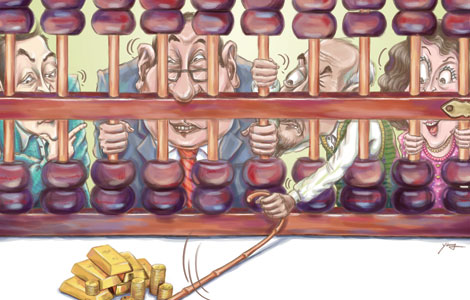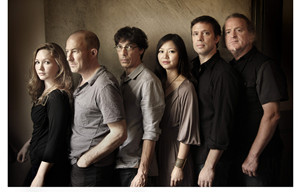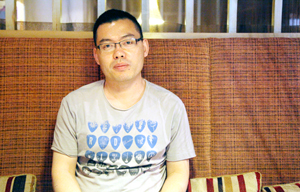Caustic composer
Updated: 2013-05-22 10:31
By Chen Nan (China Daily)
|
|||||||||||
In July 1949, Pingliang was liberated and two months later Wang, 12 then, joined the army.
He recalls that one day after school, his eyes fixed on two soldiers, one playing the accordion and the other playing the violin.
During his eight years in the army, Wang studied music theory, instrumentation and arranging. He also learned to play the erhu, accordion and brass instruments.
His first exposure to Western music was in 1955 when he began studying conducting at a military music school in Beijing. He was overwhelmed by the music of Tchaikovsiky and Mikhail Glinka.
One day when he was in the classroom, Beethoven's Symphony No 5 broadcast in the school caught his ears.
"I ran out of the classroom immediately to find out what the music was," laughs Wang. "It was like opening Pandora's box."
In 1957, Wang proceeded to Shanghai Conservatory. While he was still a student, Wang composed his String Quartet No 1 in 1961, which was the first movement of his Symphony No 1 and also his graduation work.
After he graduated, he was appointed as composer-in-residence of the Central Radio Symphony Orchestra.
But his stay was brief. He was sent to Shanxi province for seven years, again because of his outspoken nature and critical views.
He had no piano and no metronome, which made him depressed. He had to relieve his pain through labor. That was when he partly lost his hearing.
The only entertainment then was local folk music. He was drawn especially to the sad tunes, which resonated in his heart.
He says that it was Yunnan Tone Poem that saved him. He became well-known and was awarded the highest prize by the government in 1981.
But the first time he stepped on stage was not a happy experience. "I walked onto the stage and received warm applause. It was the first time that I was introduced to Chinese audiences. But filled with pain and sufferings, I felt more grief than happiness," Wang recalls.
Because of the award-winning work, Wang returned to Beijing and started to compose again.
His daughter, Wang Ying, who is also a composer now based in Berlin, is his disciple. But he often learns the latest musical knowledge from her.
"Do you know why I cannot stop composing and I will keep my passion for music even when I'm past 70?" he asks. "Because I have a fire burning inside me, I cannot let it go."
Related: Metro station music to Shanghai's ears
| Music on the wing of a dream | Living the indie dream |
Related Stories
Metro station music to Shanghai's ears 2013-05-20 11:00
Music on the wing of a dream 2013-05-17 15:17
Season 12 finale of 'American Idol' 2013-05-17 15:13
Indian music a universal language 2013-05-17 14:20
Veteran American soprano sings China's praises 2013-05-17 14:19
Crowd pleaser 2013-05-17 10:52
Today's Top News
Top Chinese brands increase in value
China's trade surplus figures 'over-inflated'
EU telecom probe 'hurts interests of both sides'
China, India in talks on trade strategy: Li
Xi, Obama to meet in California
China-Japan trade will pick up
Netizens question young official's 'rocket promotion'
Severe punishments urged for air threats
Hot Topics
Lunar probe , China growth forecasts, Emission rules get tougher, China seen through 'colored lens', International board,
Editor's Picks

|

|

|

|

|

|







